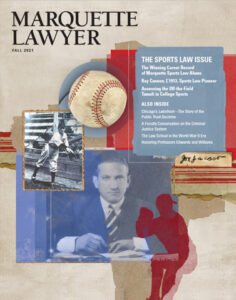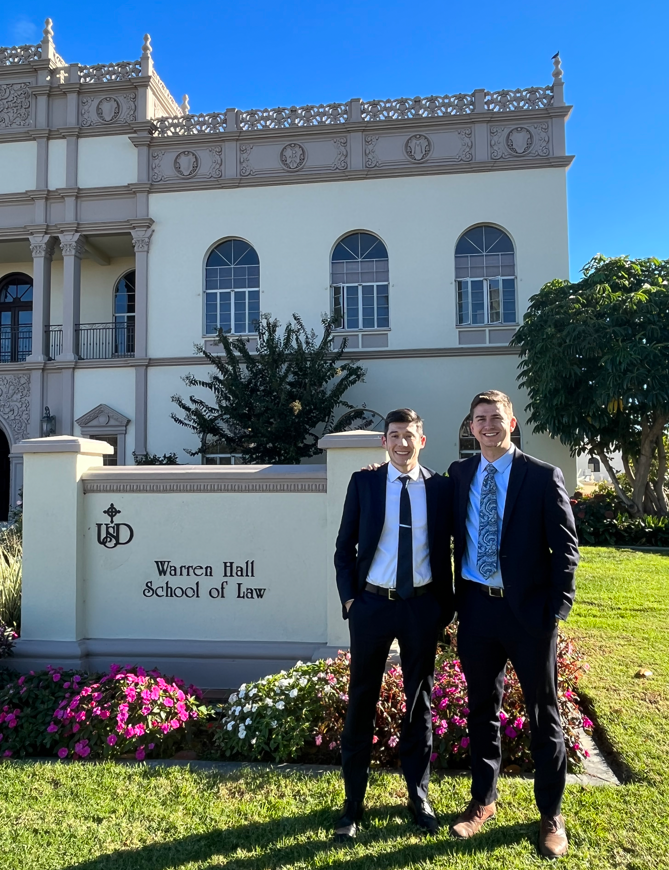 Past, present, and future. Look to all three in judging the success of any higher education program. Consider the Fall 2021 issue of Marquette Lawyer magazine as a way of putting the Marquette Law School’s sports law program up to judgment in just those ways—and we’re not shy about saying the verdict is strongly favorable. Marquette has been breaking ground in sports law for decades, it continues to be a leader, and the future of our students is promising.
Past, present, and future. Look to all three in judging the success of any higher education program. Consider the Fall 2021 issue of Marquette Lawyer magazine as a way of putting the Marquette Law School’s sports law program up to judgment in just those ways—and we’re not shy about saying the verdict is strongly favorable. Marquette has been breaking ground in sports law for decades, it continues to be a leader, and the future of our students is promising.
The new magazine, titled “The Sports Law Issue,” looks to the past with a profile of Ray Cannon, from the Law School class of 1913, who became a pioneer of sports law in the United States. The fascinating story is written by Cannon’s grandson Thomas G. Cannon, a former professor at Marquette Law School. It describes Ray Cannon’s legal work on behalf of famed athletes such as Jack Dempsey, the world heavyweight champion boxer; “Shoeless Joe” Jackson, a baseball star who was accused (wrongly, it would seem) of accepting money to throw the 1919 World Series; and Red Grange, whom some consider the greatest college football player of all time. Ray Cannon was also involved in early efforts to form an association of baseball players to help them deal with team owners. The story may be read by clicking here.
The magazine looks to the present with profiles of 14 Marquette lawyers who participated in the sports law program while in law school. They have gone on to successful careers, variously in sports and in broader fields of law. Included are some of the Marquette lawyers working for major sports franchises, teaching college courses, handling the legal needs of college sports programs, working in the business world, representing private clients, leading private businesses, and developing nonprofit organizations.
And the magazine looks to the future with profiles of six students now in the sports law program and on track for legal careers.
“A Winning Record,” the story profiling the alumni and the current students, may be read by clicking here.


 Past, present, and future. Look to all three in judging the success of any higher education program. Consider the Fall 2021 issue of Marquette Lawyer magazine as a way of putting the Marquette Law School’s sports law program up to judgment in just those ways—and we’re not shy about saying the verdict is strongly favorable. Marquette has been breaking ground in sports law for decades, it continues to be a leader, and the future of our students is promising.
Past, present, and future. Look to all three in judging the success of any higher education program. Consider the Fall 2021 issue of Marquette Lawyer magazine as a way of putting the Marquette Law School’s sports law program up to judgment in just those ways—and we’re not shy about saying the verdict is strongly favorable. Marquette has been breaking ground in sports law for decades, it continues to be a leader, and the future of our students is promising.